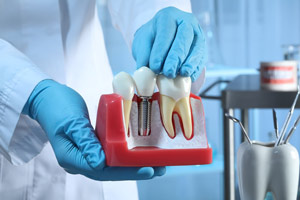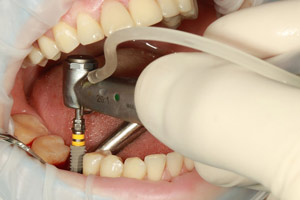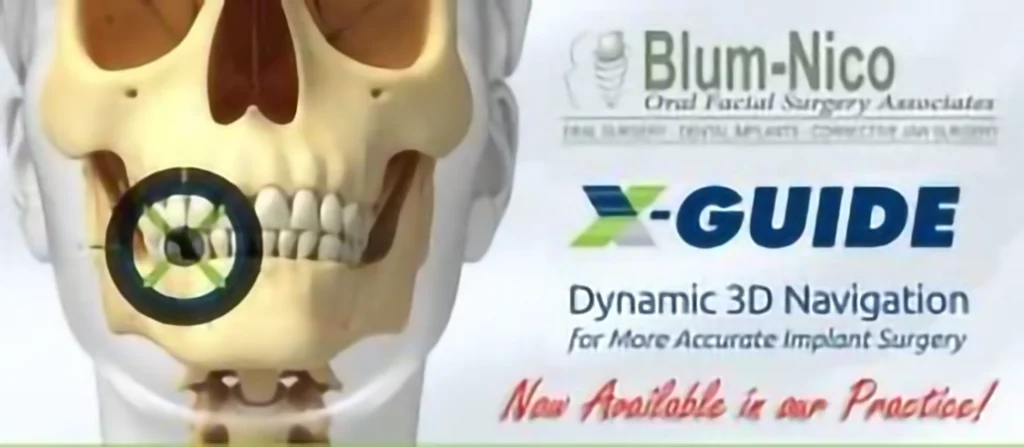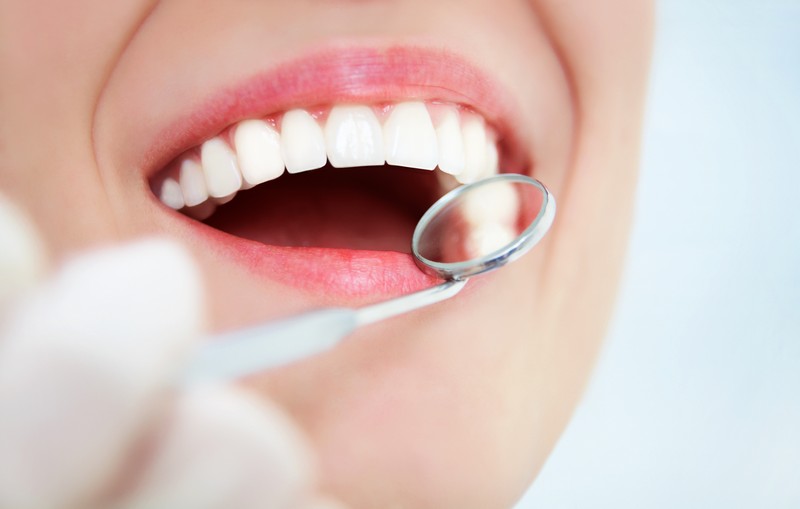The Science Behind Dental Implants:
How They Work and Why They're Effective
Are you considering dental implants but want to know more about the science behind them? Look no further! In this article, we will delve into the fascinating world of dental implants, exploring how they work and why they are so effective. Dental implants have revolutionized the field of dentistry, offering a permanent solution to missing teeth. But what sets them apart from other tooth replacement options? The answer lies in their remarkable design and the way they interact with your jawbone. By mimicking the natural structure of a tooth, dental implants provide unparalleled stability and functionality, allowing you to eat, speak, and smile with confidence.
Join us as we unravel the intricate science behind dental implants, uncovering the secrets to their success and explaining why they are the go-to choice for those seeking a long-term solution to tooth loss.
Understanding the Anatomy of a Dental Implant
To truly appreciate the science behind dental implants, it is essential to understand their intricate anatomy. A dental implant consists of three main components: the implant fixture, the abutment, and the prosthetic crown. The implant fixture is a small titanium screw that is surgically placed into the jawbone. This acts as the artificial tooth root, providing a stable foundation for the replacement tooth. The abutment is a connector that attaches to the implant fixture and supports the prosthetic crown, which is the visible part of the dental implant. The crown is custom-made to match the color, shape, and size of your natural teeth, ensuring a seamless and natural-looking result.
The design of dental implants is based on the principles of biomechanics. By mimicking the structure of a natural tooth, dental implants distribute the forces of biting and chewing evenly, preventing excessive stress on surrounding teeth and the jawbone. This unique design not only ensures the longevity of the implant but also contributes to the overall health of your oral cavity.

The Process of Dental Implant Placement
Dental implant placement is a multi-step process that requires careful planning and precision. Before the surgery, your oral surgeon will conduct a thorough examination of your mouth, including X-rays and 3D imaging, to assess the condition of your jawbone and determine the optimal placement of the implant. If necessary, bone grafting may be performed to ensure there is sufficient bone density to support the implant.
The actual implant placement surgery is typically performed under local anesthesia. However, you may prefer IV sedation as an alternative. Your oral surgeon will create a small incision in the gum tissue and drill a precise hole in the jawbone for the implant fixture. The implant is then carefully inserted into the hole and secured in place. The gum tissue is sutured back, and a healing abutment, temporary crown, or denture may be placed over the implant site to protect it during the healing process.
Over the next few weeks, a process called osseointegration takes place, during which the implant fuses with the surrounding jawbone. This is what makes dental implants so durable and long-lasting. Once osseointegration is complete, the abutment is attached to the implant fixture by your dentist, and the prosthetic crown is placed on top, completing the dental implant restoration.
Dental Implant Maintenance and Aftercare
To ensure the long-term success of your dental implants, it is important to follow proper maintenance and aftercare guidelines. Here are some key tips to keep in mind:
- **Brush and floss regularly**: Brush your dental implants at least twice a day, using a soft-bristle toothbrush and a non-abrasive toothpaste. Flossing is also crucial to remove plaque and debris from between the teeth and implants.
- **Avoid Hard Foods**: While dental implants are designed to be durable, it is best to avoid biting into hard foods or using your teeth to open packages. This can help prevent any damage to the prosthetic crown or implant fixture.
- **Visit Your Dentist Regularly**: Regular dental check-ups are essential to monitor the health of your dental implants and ensure that they remain in optimal condition. Your dentist will also perform professional cleanings to remove any plaque or tartar buildup.
- **Quit Smoking**: Smoking can negatively affect the success of dental implants by impairing the healing process and increasing the risk of complications. If you smoke, it is advisable to quit or at least reduce your smoking habits after your procedure.
Osseointegration: How Dental Implants Fuse with the Jawbone
One of the key reasons why dental implants are so effective is their ability to fuse with the jawbone through a process called osseointegration. Osseointegration is the direct structural and functional connection between living bone and the surface of an artificial implant. In the case of dental implants, the titanium surface of the implant fixture stimulates the surrounding bone tissue, encouraging it to grow and integrate with the implant.
During osseointegration, the bone cells in the jawbone create a strong bond with the implant fixture, effectively anchoring it in place. This not only provides stability for the replacement tooth but also prevents bone loss in the jaw. Unlike other tooth replacement options, such as dentures or bridges, dental implants stimulate the jawbone, preventing it from deteriorating over time. This is crucial for maintaining the integrity of the facial structure and preventing the sunken appearance that can occur with missing teeth.
Why Dental Implants Are a Long-Term Solution
Dental implants are renowned for their durability and longevity. With proper care and maintenance, dental implants can last a lifetime, making them a long-term solution for tooth loss. The key to the long-term success of dental implants lies in their ability to integrate with the jawbone and function like natural teeth.
Unlike traditional dentures or bridges, which can become loose or require frequent adjustments, dental implants offer a stable and secure solution. Because the implant fixture is anchored directly into the jawbone, there is no risk of slippage or discomfort while eating or speaking. Dental implants allow you to enjoy your favorite foods, speak with clarity, and smile confidently, without the worry of your teeth shifting or falling out.
Additionally, dental implants do not require any special maintenance or adhesives. You can brush and floss your dental implants just like natural teeth, ensuring optimal oral hygiene and reducing the risk of gum disease or tooth decay. With their natural appearance and functionality, dental implants provide an unparalleled level of comfort and convenience.
The Success Rate of Dental Implants
Dental implants have an impressive success rate, with studies showing success rates of over 95% in healthy individuals. However, the success of dental implants can vary depending on various factors, including the location of the implant, the quality of the bone, and the overall oral health of the patient. With proper planning, meticulous surgical technique, and diligent aftercare, the chances of a successful outcome are significantly increased.
It is important to note that complications with dental implants are rare but can occur. These may include infection, implant failure, nerve damage, or sinus problems in the case of upper jaw implants. However, with advancements in technology and techniques, these complications can often be managed or prevented.
Why are Dental Implants a Better Option for Replacing Missing Teeth?
Dental implants are considered a superior option for replacing missing teeth due to several reasons:
- Stability and Functionality: Dental implants provide a stable and secure foundation for artificial teeth. The implant itself is a titanium post that is surgically placed into the jawbone, acting as an artificial tooth root. This integration with the jawbone ensures a strong and durable anchor for the replacement tooth or teeth. Implants allow for natural biting and chewing function, similar to natural teeth, without slippage or discomfort.
- Preservation of Jawbone: When a tooth is lost, the underlying jawbone can deteriorate over time due to lack of stimulation. Dental implants stimulate the jawbone through the process of osseointegration, which helps to prevent bone loss and maintain the integrity of the facial structure. This feature distinguishes implants from other tooth replacement options, such as dentures or dental bridges, which do not provide the same level of bone preservation.
- Longevity and Durability: With proper care and maintenance, dental implants have the potential to last a lifetime. The materials used in implants, such as titanium, are biocompatible and resistant to decay or damage. Other traditional options, like dental bridges, may require replacement or repair over time.
- Improved Oral Health: Dental implants do not require alterations or support from adjacent natural teeth, as is necessary with dental bridges. This means that neighboring teeth do not need to be filed down or modified to accommodate the restoration, preserving their natural structure. By avoiding this alteration, the overall oral health and integrity of the adjacent teeth can be better maintained.
- Aesthetics and Natural Appearance: Dental implants provide a highly aesthetic and natural-looking tooth replacement solution. The artificial teeth are custom-made to match the color, shape, and size of the patient’s natural teeth, resulting in a seamless and harmonious smile. Implants also eliminate issues commonly associated with removable dentures, such as changes in speech or compromised facial appearance.
- Confidence and Quality of Life: Dental implants offer a significant improvement in self-confidence and quality of life for individuals with missing teeth. They restore the ability to eat, speak, and smile with confidence, without the fear of slippage or discomfort associated with other tooth replacement options. Dental implants provide a long-term solution that enhances oral function, aesthetics, and overall well-being.
Myths About Dental Implants
There are a few common myths and misconceptions about dental implants. Here are some of them:
- Dental implants are extremely painful: One of the most common myths about dental implants is that the procedure is excruciatingly painful. In reality, dental implant surgery is typically performed under local anesthesia, and patients usually experience minimal discomfort during and after the procedure. Dentists also provide appropriate pain management techniques to ensure patient comfort.
- Dental implants have a high failure rate: Another myth is that dental implants frequently fail. However, with proper planning, placement by an experienced dentist, and good oral hygiene, dental implants have a high success rate. The success rate can vary depending on individual factors such as overall health, oral hygiene practices, and the location of the implant in the mouth.
- Dental implants are only for the elderly: Some people believe that dental implants are only suitable for older individuals. However, dental implants are a viable tooth replacement option for individuals of all ages, as long as they have healthy gums and sufficient jawbone density to support the implant.
- Dental implants are noticeable and look unnatural: Dental implant restorations are designed to closely resemble natural teeth in terms of appearance, shape, color, and functionality. Skilled dentists work to ensure that the implant crown or bridge blends seamlessly with the surrounding teeth, resulting in a natural-looking smile.
- Dental implants require excessive maintenance: Another myth is that dental implants require extensive maintenance or special care. In reality, caring for dental implants is similar to caring for natural teeth. Regular brushing, flossing, and routine dental check-ups are essential for maintaining oral health and the longevity of dental implants.
- Dental implants are prohibitively expensive: While dental implants may have a higher upfront cost compared to other tooth replacement options, they are a long-term investment in oral health and quality of life. Additionally, the cost of dental implants can vary depending on factors such as the number of implants needed, the location, and any additional procedures required. It’s important to consult with a dentist to understand the specific cost and potential financing options available.
Conclusion: The Benefits of Dental Implants for Oral Health and Confidence
Dental implants have revolutionized the field of dentistry, offering a permanent and natural-looking solution for missing teeth. By mimicking the structure and function of natural teeth, dental implants provide unparalleled stability, functionality, and aesthetics. With proper care and maintenance, dental implants can last a lifetime, making them a cost-effective and long-term solution for tooth loss.
Beyond the cosmetic benefits, dental implants also contribute to the overall health of your oral cavity. By stimulating the jawbone, dental implants prevent bone loss and preserve the integrity of the facial structure. They also eliminate the need for altering or removing adjacent teeth as conventionally done with other dental restoration methods.
If you are considering dental implants, it is important to consult with a qualified oral surgeon who specializes in placing dental implants. They will assess your specific situation, discuss your treatment options, and guide you through the process to ensure the best possible outcome. With the remarkable science behind dental implants and their proven success, you can regain your smile, confidence, and quality of life.



